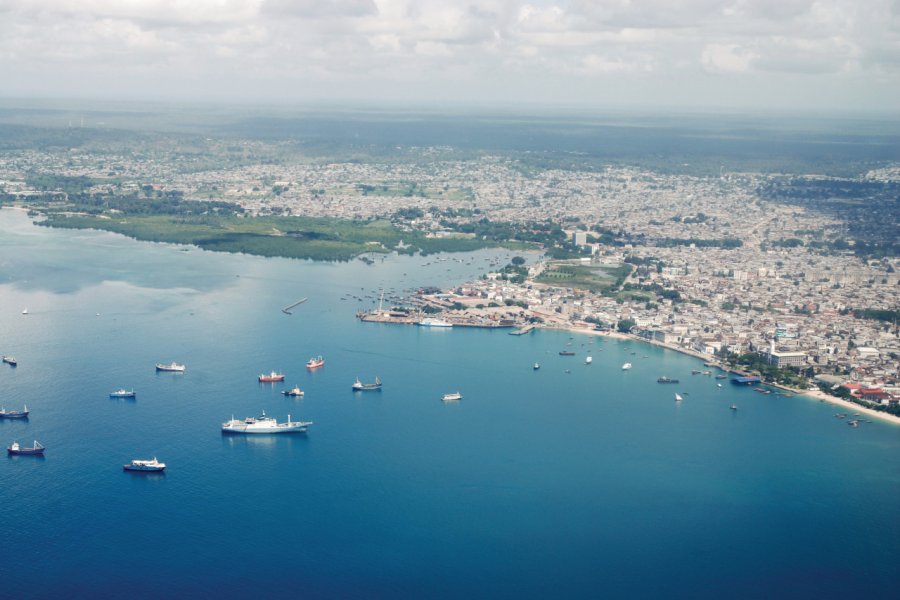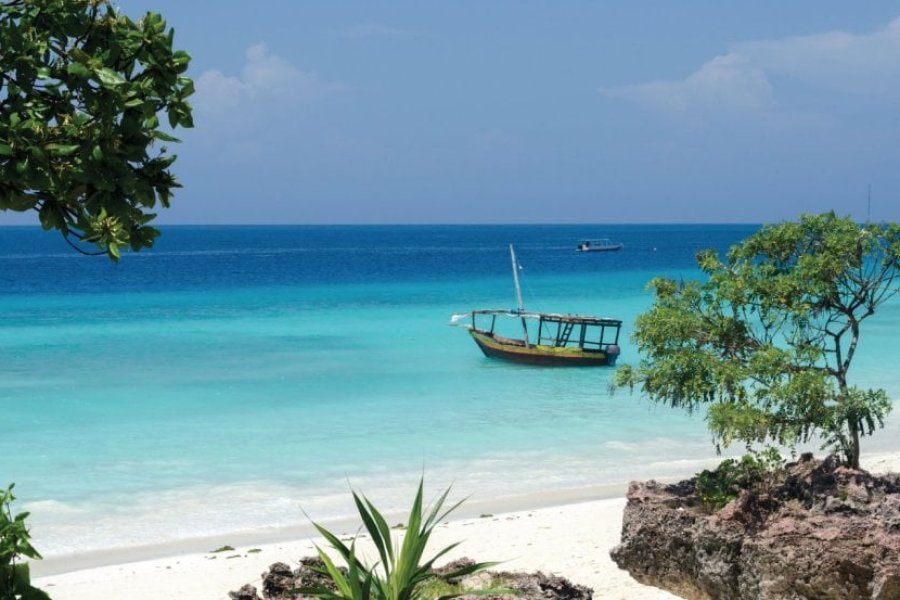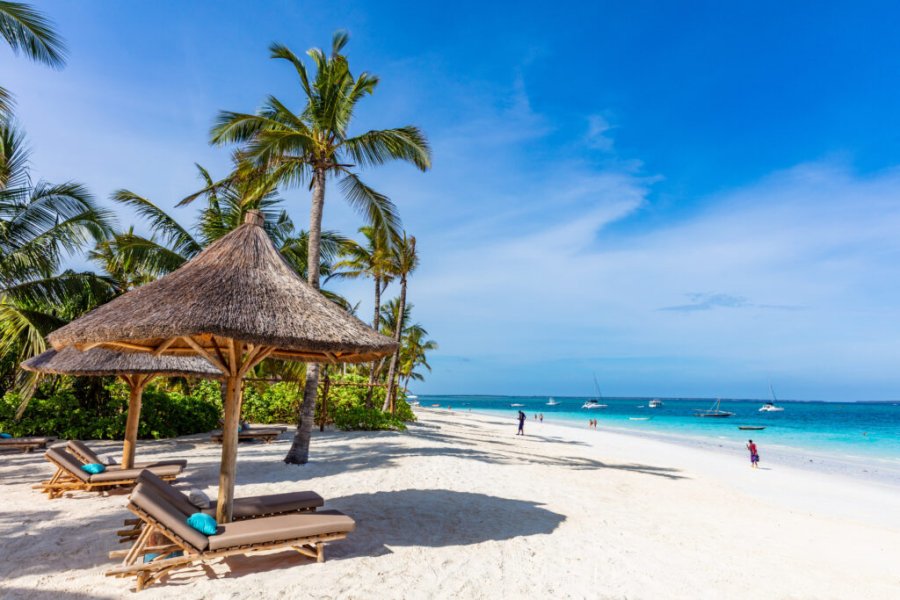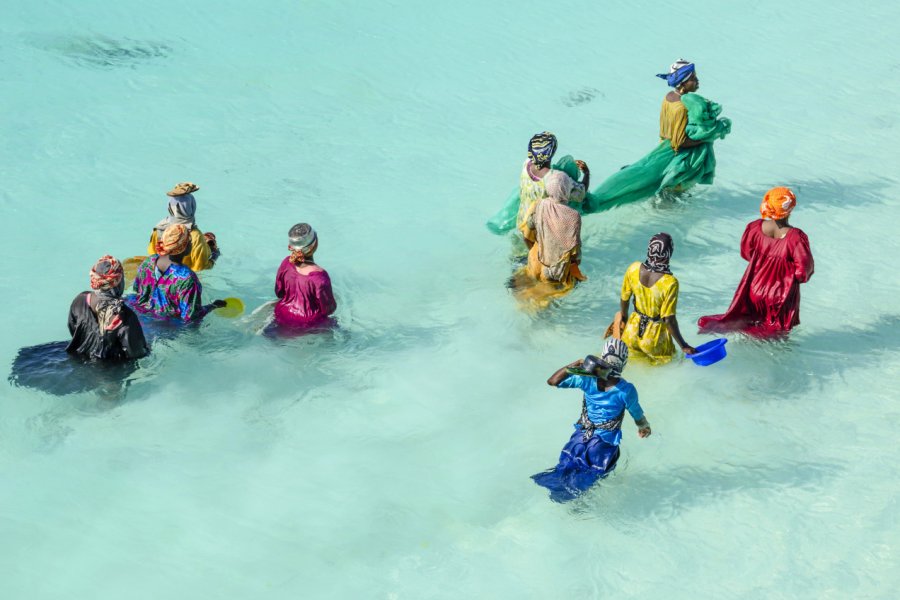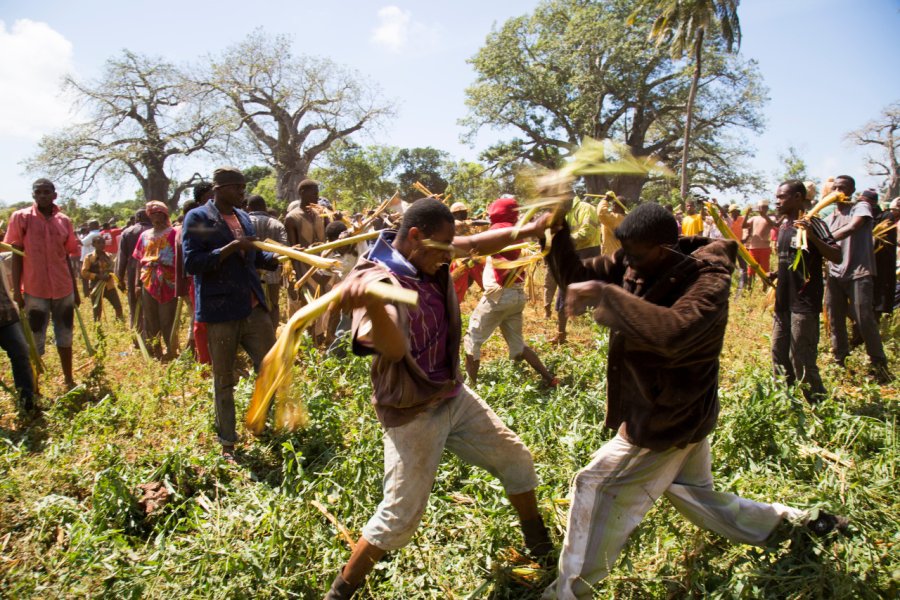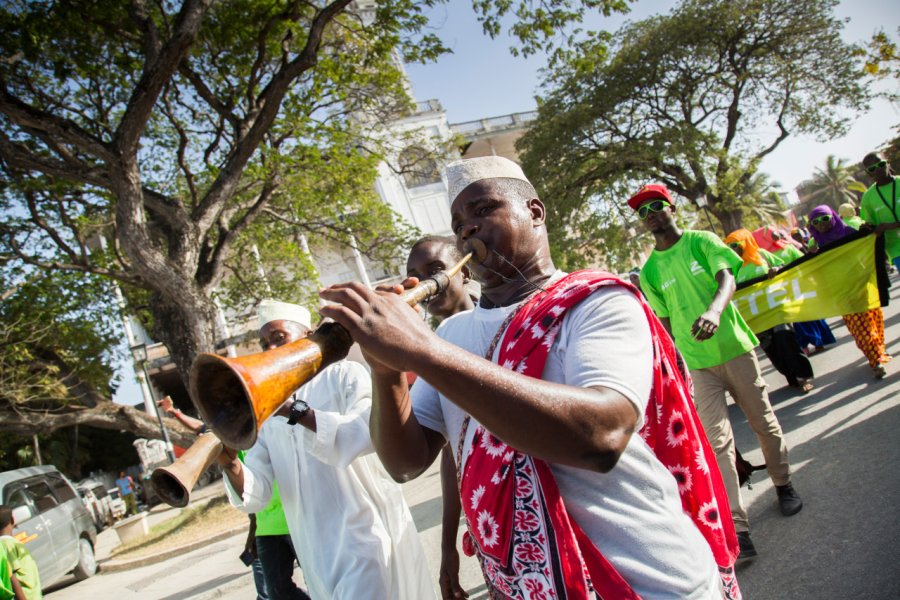Travel guide Zanzibar Archipelago
Tanzania is famous for its vast plains, its safaris in grandiose landscapes and its famous Kilimanjaro known to all. It is also, about forty kilometers off Dar Es Salaam, Zanzibar, an archipelago of long white sand beaches, bordered by a turquoise lagoon and protected by a spectacular coral reef where thousands of tropical fishes wriggle... Unguja and Pemba, the two paradise islands of the semi-autonomous region of Zanzibar, are an ode to idleness and an Eden at the crossroads of the Indian Ocean trade routes that have mixed multiple African, Arab and Indian influences. It is not surprising then that Stone Town (or Zanzibar Town), the capital of the archipelago, was listed as a World Heritage Site by UNESCO in 2000. The city is an invitation to travel, with its Zanzibar travel guide at your fingertips, with its maze of alleys, its splendid carved doors and its colorful market in the Darajani district. Scuba diving and snorkeling enthusiasts won't forget to explore the reefs ofPemba Island, while nature lovers will want to meet the incredible Colobe monkey in Jozani National Park. The nature reserves are the country's treasure. Venturing on a Tanzanian safari is an opportunity to perhaps meet the Big Five: African lion, African leopard, African elephant, buffalo and black rhino.
What to see, what to do Zanzibar Archipelago?
-
Book an activity
-
Customized travel
- The most beautiful cities Zanzibar Archipelago
When to go Zanzibar Archipelago ?
The best time to visit Zanzibar is during the dry season, ideally from May to June and from September to October to avoid the heat. It may well rain a few drops in the evening, and the sky sometimes offers cloudy landscapes but their beauty would then delight the painter in you, even on a honeymoon. The short rainy season, in November, is also pleasant because the rainfall is rather irregular even if it can rain several days in a row.
Suggested addresses Zanzibar Archipelago
Travel Zanzibar Archipelago
-
Find a hotel
-
Car Rental
-
-5% on travel insurance-15% off travel insurance
-
Find a local agency
L'archipel de Zanzibar offre différentes facettes pour envisager un séjour différent d'une île à l'autre. On peut venir à Unguja pour une dizaine ou quinzaine de jours pour découvrir Stone Town, sa capitale mystérieuse, puis de perdre sur ses côtes, qui ont toutes une atmosphère différentes. On peut passer quelques jours à Nungwi au nord est la partie littorale la plus touristique, avec une plage spectaculairement turquoise et beaucoup d'animation le soir venu. Puis à Matemwe, très sauvage et calme, juste en face de l'atoll de Mnemba. Et finir par Pajé et Jambiani, plus ventées et prisées pour le kitesurf, l'ambiance y est plus jeune. Enfin on peut s'isoler sur la côte est entre Pwani Mchangani et Chwaka en passant par Kiwengwa, où s'égrènent des resorts de luxe all inclusive. On vient surtout à Mafia et Pemba pour faire de la plongée sous-marine et sortir des sentiers battus car elles sont peu touristiques.
Find unique Stay Offers with our Partners
How to go Zanzibar Archipelago
How to go alone
To get the best fares, it's essential to get your tickets well in advance. Consider buying your tickets six months before departure or, if you have more time than money, go through the Middle East, there are cheaper tickets in all seasons by these routes. It is also possible to reach the archipelago by ferry from the center of Dar Es Salaam for a two-hour crossing.
How to go on a tour
Tour operators offer a wide range of tour ideas to help you discover Zanzibar. Safaris, diving, lazing on the islands, trekking or honeymooning, the options are numerous. Half board or full board, they adapt to your budget, to the duration of your stay and organize the tours during the best periods.
How to get around
The daladalas (collective minibuses) make it possible to cover the main villages of the main island of Unguja for very little money, even if the routes are interspersed with multiple stops and you have to be patient before discovering the wonders of Zanzibar. If you want to avoid the often overcrowded public transportation, some agencies and large hotels offer to rent minibuses for several people to travel directly. It is also possible to rent cars and two-wheelers and the roads are in excellent condition. Driving is on the left side of the road.
Featured articles Zanzibar Archipelago
Discover Zanzibar Archipelago
In the final analysis, little is known about Zanzibar. Except that it's a dream island on the Indian Ocean, part of Tanzania. Its history is rich in influences from the four corners of this ocean and the Red Sea, especially the Persians, Arabs and Indians, who together with the Bantu peoples forged the Swahili identity. Its geography and biodiversity are incredible, and its coral reefs and marine mammals (which you can observe by scuba diving) are fascinating. Its Swahili population is imbued with a very strong, distinctive culture, reflected in religion (Islam, since 98% of the archipelago's inhabitants are Muslims), lifestyle and clothing (with colorful kangas). But also the cuisine, brimming with spices that grow on the island and made its fortune in the last century. Discover all the facets of Zanzibar's identity!
Pictures and images Zanzibar Archipelago
The 12 keywords Zanzibar Archipelago
1. Archipelago

Zanzibar refers to both the main island (also known as Unguja) of the archipelago, which is actually made up of two islands - Unguja and Pemba - as well as a dozen smaller satellite islands. Mafia Island is geographically part of the archipelago, but is administratively attached to the mainland region of Pwani.
2. Capitals
Zanzibar is the capital of the semi-autonomous eponymous archipelago, while Dodoma - a small town with only the Parliament - is the constitutional capital of Tanzania, and Dar es Salaam is the populous economic capital. Why so many capitals? The country was born from the union between Tanganyika and Zanzibar in 1964 (Tan-Zan-ie).
3. Dala dala

This is the cheapest local transport, a van with two seats facing each other in the back. The fleet in Zanzibar has been partly renewed by more secure vans. The money is managed by the mpigadebe, "the person who hits the debe", formerly a 4-gallon can of petrol which he taps to attract customers
4. Dhow
These traditional wooden dhows with their large white triangular sails are typical of Zanzibar, magnifying the sunset scenery in Stone Town and Nungwi. These boats are the heritage of the first trade routes on the Red Sea and the Indian Ocean coming from Arabia and then from Asia, carried by the Moonsoon (monsoon wind).
5. Spices

It was the first Omani sultan, Seyyid Said, who initiated the cultivation of spices in Zanzibar at the end of the 19th century to compensate for the end of slavery. Most of them were imported from Southeast Asia. In addition to the precious clove, cinnamon, pepper, vanilla, turmeric, cardamom, cumin, ginger, nutmeg, chilli, lemon grass...
6. Islam
Zanzibar is 98% Muslim, unlike mainland Tanzania. This particularity is correlated to the arrival of the Persian Muslims in the 10th century, then to its reconquest by the Sultans of Oman in the 18th century, who ruled there for two centuries. It is a rigorist Sunni Islam of Shafi'i obedience, as on the Arabian Peninsula
7. Kanga
The kanga is the local loincloth, a large, rectangular, colourful printed cloth with a Swahili proverb written at the bottom. It is made of two identical pieces, quite thin and made of cotton, and it is used by women to dress (one piece for the loincloth, one for the veil), to carry their child on their back, to make a bundle...
8. Karibu
Don't be surprised by this exotic interjection, which is more reminiscent of the Canadian steppes than the tropics. Karibu means both "Welcome" and "You're welcome", as in English. To be polite, you should answer "Asanté Sana", "Thank you very much", at every corner, as you are always welcomed.
9. Kitesurfing

The south-east coast of the island is subject to regular and strong enough winds to practice kitesurfing. The clubs of Jambiani and Pagé attract many enthusiasts of this sport. In recent years, they have multiplied on this coast, attracting young tourists. The lagoon, very smooth at mid-tide, is the perfect place to try.
10. Diving
The coral reefs of Mafia, Pemba, Unguja and Mnemba Atoll are renowned for their spectacular biodiversity and rich marine life: schools of multicoloured fish, whale sharks, turtles, dolphins, manta rays... The archipelago is sought after by divers (especially Pemba and Mafia). The water clarity can reach 40 meters!
11. Swahili
The original Bantu population mixed over the centuries with peoples from Persia, Oman, India, and the Great Lakes of Africa (due to slaves exiled to the plantations). Thus was born the Swahili identity, tinged with Islam, spiced with spices, veiled with animist rites, whose Kiswahili language is an integral part of its culture.
12. Taarab
This musical style specific to Zanzibar was born in the 19th century in the entourage of the sultan, initially played as a singing competition, accompanied by Egyptian instruments, especially violins. Then Indian and Arab instruments completed the harmony. Initially sung in Arabic by men, female singers such as Bi Kidude feminized it.
You are from here, if...
You say sasa to punctuate your sentences or gently interrupt your interlocutor, and sawa-sawa to end conversations or say "ok"
You say amnashida for "no problem", not "Hakuna Matata" like in The Lion King. The locals like to say it to tourists who know the formula but it is "broken Swahili"
You greet your interlocutors at length. Traditional greetings in Swahili are a national art that should be respected. People respond to each other mechanically with an exchange of about ten sentences before addressing more personal words.
You know how to find your way around the old Stone Town without a GPS, even though the streets are like a labyrinth
You know how to haggle without being cheated and without undercutting the price
You know how to take a dala dala (without a road map and with luggage) and local boats (ferries or dhows) from island to island to get around the archipelago.
Other destinations Zanzibar Archipelago
- Stone Town
- Jambiani
- Kendwa
- Chumbe Island
- Mnemba Island
- Ngezi Forest Reserve
- Makunduchi
- Misali Island
- Nungwi
- Jozani Chwaka Bay National Park
- Michamvi Pingwe
- Matemwe
- Kizimkazi
- Pajé
- Michamvi Kae
- Fukuchani
- Mtoni
- Chwaka Bay
- Tumbatu Island
- Prison Island
- Mangapwani
- Wambaa
- Unguja Ukuu
- Uroa
- Bububu
- Chake Chake
- Pwani Mchangani
- Konde
- Ras Kigomasha
- Pongwe

